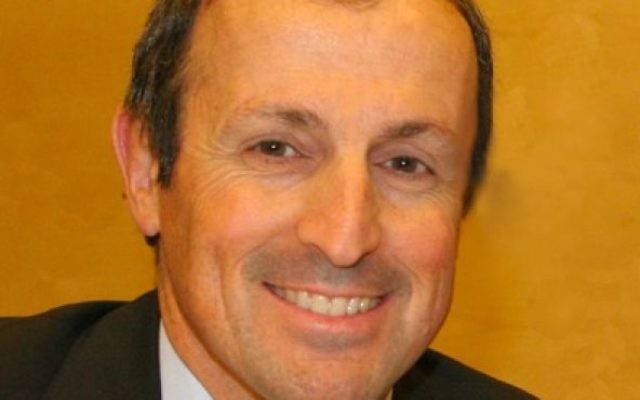Humanity shines through
THESSALONIKI and Zakynthos are not names which automatically spring to mind when discussing the Holocaust. Particularly as the majority of survivors who made a home in Australia in the aftermath of the Shoah originated in Eastern Europe.
THESSALONIKI and Zakynthos are not names which automatically spring to mind when discussing the Holocaust. Particularly as the majority of survivors who made a home in Australia in the aftermath of the Shoah originated in Eastern Europe.
But given that what transpired in those major Greek locations encapsulates both extremes of human behaviour – evil and humanity –they jointly comprise a starkly compelling prism through which to view International Holocaust Remembrance Day and Auschwitz Liberation Day, which fall on January 27.
I recently visited both places, immersing myself in the diametrically contrasting experiences of their Jewish communities – one almost totally decimated, the other just a few kilometres away entirely saved through the extraordinary courage and unwavering humanity of the local villagers and their civic and religious leaders. The shattering difference between the ultimate fates of these communities resonated powerfully with this observer.
I managed also to locate and meet with Lena Carrer, sole daughter of Loucas Carrer, the heroic wartime mayor of the picturesque island of Zakynthos – one of two civic leaders who incredibly presented their own names to the Gestapo instead of those of the island’s Jewish residents. More of that poignant encounter later.
The second-largest city in Greece, Thessaloniki was established 2331 years ago. Falling alternatively under the rule of the Macedonians, Romans, Byzantines, Normans, Crusaders, Venetians, Ottomans and Greeks, it was home to a flourishing community of 52,000 Jews when German forces seized the city during World War II. Thessaloniki’s largest ethnic community for 400 years, the Jews had lived in harmony with its other major communities – Greeks and Turks – with their dominant role in the region’s cultural and economic development so impressing David Ben-Gurion when he visited Thessaloniki in 1914 that he described the city as “Jerusalem of the Balkans”.
That world crashed down in 1941, however. The Germans duly destroyed 56 synagogues and the largest Jewish cemetery in Europe comprising 350,000 graves, closed the city’s three Jewish newspapers, raided Jewish properties, ransacked and seized invaluable archives and obtained the names of all Jewish community members from its chief rabbi. On July 11, 1942 about 9000 Jewish men were ordered to gather in Eleftherias Square – Liberty Square – and perform humiliating exercises in the blazing sun for the entire day. Those who collapsed from exhaustion were savagely beaten, while the strongest were despatched to forced labour camps for the German Army. The majority of civilian onlookers watched in silence; some even applauded the grotesque spectacle.
The draconian Nuremberg Laws were enacted, forbidding Jews from using public transport, eating in restaurants and buying or selling property, and ordering them to wear an identifying yellow star. And all 52,000 were forced to relocate to four ghettos, walking to their new cramped quarters through the city streets in full view of their fellow citizens. As the final stage in the Nazis’ industrialised machinery of death, 19 transports ferried them to death camps from the forlorn-looking railway station – 18 to Auschwitz, one to Bergen-Belsen – on a gruelling -eight-day train journey, the first departing on March 15, 1943. Only 1950 people survived.
On Zakynthos, meanwhile, a minuscule island south-west of Thessaloniki where dark-green olive trees cover much of the hilly terrain, a dramatically different scenario played out six months later. Ordered to provide the governor of the German garrison with the names of the island’s 275 Jews, Mayor Loucas Carrer and Bishop Chrysostomos did the unthinkable: in the full knowledge that their actions could mean a firing squad, they handed the Nazis a piece of paper which they stated contained the 275 names. It didn’t. It carried just two names – their own. In the meantime, they encouraged local villagers to hide their Jewish comrades in churches, wells and farmhouses. The entire Jewish community of Zakynthos was saved through those exceptional acts of courage. Not one person was betrayed.
Sitting in the Carrer family home on Zakynthos recently, I asked his daughter Lena how she felt about her father’s remarkable actions. Nonchalantly brushing aside any suggestion of heroism, she responded: “It was a natural thing to do.
“I always admired my father,” she said matter-of-factly. “He always had strong beliefs about what was right. He didn’t speak about what he had done when I was young and he never asked for recognition. But as I grew up, I became increasingly aware of the importance of his actions. I’m so happy that he did not send anyone to Auschwitz. I would not have been able to live with myself if he had.”
VIC ALHADEFF
Vic Alhadeff is CEO of the NSW Jewish Board of Deputies.


comments